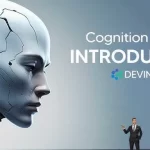
Revolutionizing Education Through AI
December 18, 2024Introduction
Artificial Intelligence (AI) is redefining how education is delivered and experienced, with its influence extending across personalized learning, innovative teaching methodologies, efficient administration, and dynamic assessment practices. While AI holds immense promise for creating a more inclusive, effective, and accessible educational landscape, challenges like data privacy, algorithmic bias, and equitable access demand thoughtful solutions. This blog delves into the transformative impact of AI on education, explores its potential to reshape the future, and provides a roadmap for overcoming the associated challenges.
Personalized Learning: A Tailored Approach to Education
Traditional education systems often rely on uniform teaching methods, leaving diverse student needs unmet. AI-powered adaptive learning systems change the narrative by tailoring education to individual learners.
- Customized Learning Paths: AI systems analyze performance data, identifying students’ strengths, weaknesses, and learning styles. This enables the creation of personalized study plans that boost engagement and achievement.
- Real-Time Feedback: Immediate feedback from AI systems empowers students to address challenges quickly, enhancing their understanding of key concepts.
- Inclusive Learning: By accommodating various learning paces and styles, AI fosters a supportive environment for students with diverse abilities, ensuring no one is left behind.
- Interactive Simulations: Virtual environments powered by AI provide hands-on experiences, simulating real-world scenarios to enhance learning outcomes.
Through personalization, AI not only increases student motivation but also democratizes access to quality education, setting a solid foundation for lifelong learning.
Reshaping Teaching Methodologies
AI isn’t replacing teachers; it’s empowering them. By automating repetitive tasks and providing actionable insights, AI allows educators to focus on what matters most: teaching and mentoring.
- Automated Administrative Tasks: From grading to lesson planning, AI reduces workload, freeing up time for interactive and critical thinking exercises.
- Innovative Learning Tools: AI-powered platforms incorporate gamified activities, simulations, and multimedia to create engaging and dynamic learning environments.
- Learner-Centric Focus: Teachers can use AI analytics to track individual progress and design customized interventions, promoting a student-first approach.
- Collaboration: Virtual teamwork and resource-sharing platforms foster collaboration among students, enhancing group learning experiences.
AI’s ability to support teachers extends beyond the classroom, allowing them to craft strategies that cater to the unique needs of their students.
Revolutionizing Assessment Practices
Assessments are crucial in education, and AI is redefining how they’re conducted. Moving beyond traditional exams, AI introduces dynamic, personalized, and continuous assessment techniques.
- Instant Feedback: AI systems analyze responses in real time, offering insights into comprehension and areas for improvement.
- Skill Evaluation: Critical thinking, creativity, and problem-solving skills are assessed using advanced AI tools.
- Automated Grading: From essays to exams, AI-powered tools ensure fast, consistent, and objective evaluation.
- Continuous Monitoring: Continuous assessments enabled by AI provide timely feedback to educators, helping them implement effective interventions.
AI’s data-driven approach to assessment not only saves time but also offers deeper insights into student performance, paving the way for more targeted educational strategies.
Optimizing Administrative Processes
Efficient management is vital for educational institutions, and AI offers solutions that streamline operations, enhance decision-making, and improve resource allocation.
- Enrollment Automation: Tasks like application processing, document verification, and course registration are automated, simplifying student onboarding.
- Resource Optimization: AI analyzes resource utilization patterns, ensuring effective allocation of classrooms, labs, and equipment.
- Data-Driven Decision-Making: Administrators gain actionable insights from AI analytics, enabling better student performance tracking and operational planning.
- Chatbots for Support: AI-powered chatbots provide students with 24/7 assistance, enhancing engagement and retention.
By automating mundane tasks, AI allows institutions to focus on strategic goals, improving overall efficiency.
Challenges and Ethical Considerations
The transformative power of AI in education comes with its share of challenges that need careful attention.
- Data Privacy and Security: With AI relying on vast amounts of student data, protecting sensitive information from breaches is crucial.
- Algorithmic Bias: Biased datasets can perpetuate inequalities, necessitating rigorous checks to ensure fairness.
- Teacher Training: Educators need robust training programs to effectively use AI tools.
- Equitable Access: Bridging the digital divide is essential to ensure that AI benefits are accessible to all students, irrespective of their socio-economic background.
- Over-Reliance on Technology: Balancing technological solutions with human interaction is vital for maintaining the essence of education.
- Cost of Implementation: High costs can deter institutions, especially in underfunded areas, from adopting AI technologies.
Addressing these concerns requires a collective effort from policymakers, educators, and technologists to create an ethical and equitable AI-powered education ecosystem.
Future Directions: The Road Ahead
The future of AI in education is promising, provided its potential is harnessed responsibly.
- Promoting Inclusivity: AI must be leveraged to bridge educational gaps and ensure equal access to quality learning opportunities.
- Lifelong Learning: Personalized, adaptive AI tools can support learners at every stage of their educational journey.
- Fostering Creativity: Future AI systems should stimulate innovation, critical thinking, and problem-solving.
- Strengthening Ethics: A focus on transparency, accountability, and student autonomy will drive responsible AI adoption.
By prioritizing these aspects, AI can lead the way in transforming education for generations to come.
Conclusion
Artificial Intelligence is not just a technological advancement; it’s a transformative force in education. By personalizing learning, revolutionizing teaching, and optimizing processes, AI has the potential to create an inclusive and effective educational system. While challenges like data privacy, equity, and ethical use must be addressed, the benefits far outweigh the hurdles.
The key lies in responsible implementation, ensuring that AI complements human efforts rather than replacing them. With thoughtful integration, AI can redefine the future of education, equipping learners with the skills and knowledge they need to thrive in a rapidly evolving world.
Frequently Asked Questions on AI in Education
1. How is AI personalizing learning experiences for students?
AI is revolutionizing education through personalized learning by analyzing student performance data to create customized learning paths. Adaptive learning systems utilize algorithms to assess individual student needs, such as quiz scores and homework completion, and then recommend specific resources or exercises to support their learning. This tailored approach ensures students receive the right level of challenge and support, adapting to their learning pace and style.
2. What role does AI play in reshaping teaching methodologies?
AI is reshaping teaching by automating administrative tasks like grading and lesson planning, which frees up educators’ time for more meaningful interactions with students. AI-powered tools provide valuable insights into student progress and performance through data analytics, allowing teachers to make informed decisions about their instructional strategies and interventions. Additionally, AI tools can create interactive lessons and provide real-time feedback to students, enhancing the overall learning process.
3. In what ways is AI revolutionizing assessment practices in education?
AI is revolutionizing assessment by moving beyond traditional exams to more dynamic and insightful evaluations. AI-powered tools can analyze student responses to a wide range of assessments, including essays and open-ended questions, to offer detailed feedback. This technology enables real-time analysis of student performance, which helps educators identify areas where students may need more support and track individual progress over time. AI can also automate grading for assignments and provide personalized learning paths based on student performance.
4. How is AI optimizing administrative processes in educational institutions?
AI optimizes administrative processes by automating tasks like student enrollment, scheduling, and resource allocation. AI tools can streamline application processing, verify documents, and predict student course preferences based on past enrollment data. AI can track the usage of classrooms, labs, and equipment, and then make recommendations to reduce waste and allocate resources more effectively. This leads to increased efficiency, improved accuracy, and enhanced decision-making within educational institutions.
5. What are some key ethical considerations and challenges that arise from using AI in education?
The use of AI in education presents several ethical considerations, such as ensuring data privacy and protection, avoiding algorithmic bias, and ensuring transparency. Data protection measures, like encryption and access controls, are vital to safeguard sensitive student information. Algorithmic bias can perpetuate inequalities, therefore careful design and testing of AI systems are crucial. Transparency in how AI systems make decisions, especially those affecting student educational experiences, is also essential.
6. How does AI affect equity and accessibility in education?
While AI has the potential to provide equitable access to quality education by personalizing learning experiences, there is a risk that it could also worsen existing disparities. Disadvantaged or marginalized students may lack the digital literacy, internet access, or resources to fully benefit from AI-powered education. Bridging this digital divide and ensuring equitable access to technology, digital literacy and support are vital for all students.
7. What are some potential future directions for AI in education?
Future directions for AI in education involve further developing AI tools that can stimulate creativity, encourage problem-solving, and nurture innovation among students, in addition to their current roles in personalization. There is a need to balance AI’s role in content delivery with activities that promote critical thinking, as well as ongoing development to provide more comprehensive support for educators. Furthermore, it’s essential to develop ethical guidelines and standards to ensure that AI benefits all students and promotes equity.
8. What is the role of AI in supporting lifelong learning?
AI has the potential to support lifelong learning by offering personalized and adaptive learning experiences tailored to individual needs and interests. These experiences will allow individuals to acquire new skills and knowledge throughout their lives. AI-powered platforms can continuously assess learning progress and adjust content and difficulty levels as needed, fostering adaptability and preparedness in a rapidly changing world.
Glossary of Key Terms
Adaptive Learning Systems: AI-powered platforms that adjust to each student’s learning needs and preferences by analyzing performance data and creating customized learning paths.
Algorithmic Bias: A systematic and repeatable error in a computer system that creates unfair outcomes by reflecting the prejudices of its creators or the data used for training.
Artificial Intelligence (AI): The ability of a computer or a robot controlled by a computer to do tasks that are usually done by humans because they require human intelligence and discernment.
Data Anonymization: The process of transforming data so that personally identifiable information cannot be easily re-identified, thereby protecting the privacy of individuals.
Digital Literacy: The ability to use information and communication technologies to find, evaluate, create, and communicate information, requiring both technical and critical thinking skills.
Personalized Learning: An educational approach that tailors instruction to meet the individual needs, preferences, and learning styles of each student.
Real-Time Feedback: Immediate responses and insights provided to students based on their performance, allowing them to adjust their learning strategies accordingly.
Streamline Administrative Tasks: The act of optimizing and making administrative tasks more efficient and less time-consuming, often through automation and technology.
Intelligent Tutoring Systems: Computer-based learning platforms that provide personalized guidance and feedback to students, adapting to their individual learning needs.
Machine Learning: A subset of artificial intelligence where computer systems learn from data without explicit programming, enabling them to make predictions and decisions.
References
Onesi-Ozigagun, O., Ololade, Y. J., Eyo-Udo, N. L., & Ogundipe, D. O. (2024). Revolutionizing education through AI: a comprehensive review of enhancing learning experiences. International Journal of Applied Research in Social Sciences, 6(4), 589-607.


















